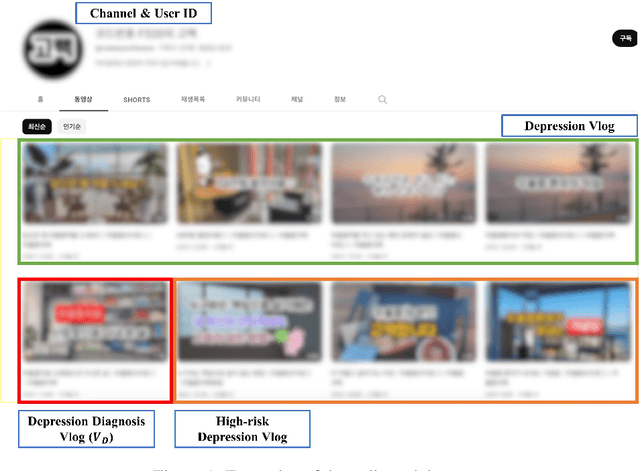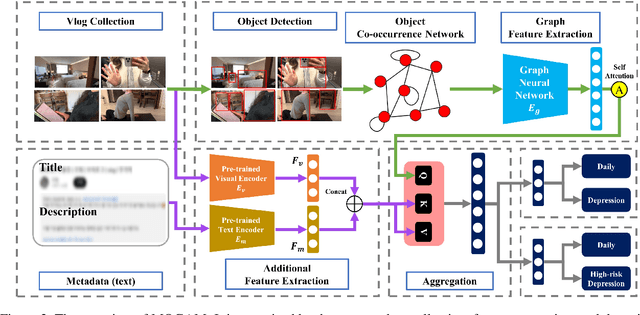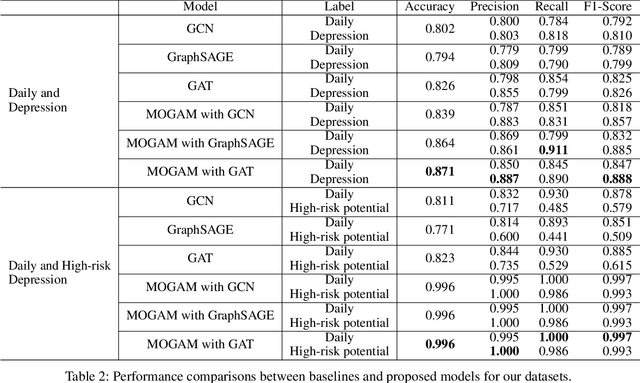Seoyun Kim
MOGAM: A Multimodal Object-oriented Graph Attention Model for Depression Detection
Mar 21, 2024



Abstract:Early detection plays a crucial role in the treatment of depression. Therefore, numerous studies have focused on social media platforms, where individuals express their emotions, aiming to achieve early detection of depression. However, the majority of existing approaches often rely on specific features, leading to limited scalability across different types of social media datasets, such as text, images, or videos. To overcome this limitation, we introduce a Multimodal Object-Oriented Graph Attention Model (MOGAM), which can be applied to diverse types of data, offering a more scalable and versatile solution. Furthermore, to ensure that our model can capture authentic symptoms of depression, we only include vlogs from users with a clinical diagnosis. To leverage the diverse features of vlogs, we adopt a multimodal approach and collect additional metadata such as the title, description, and duration of the vlogs. To effectively aggregate these multimodal features, we employed a cross-attention mechanism. MOGAM achieved an accuracy of 0.871 and an F1-score of 0.888. Moreover, to validate the scalability of MOGAM, we evaluated its performance with a benchmark dataset and achieved comparable results with prior studies (0.61 F1-score). In conclusion, we believe that the proposed model, MOGAM, is an effective solution for detecting depression in social media, offering potential benefits in the early detection and treatment of this mental health condition.
 Add to Chrome
Add to Chrome Add to Firefox
Add to Firefox Add to Edge
Add to Edge